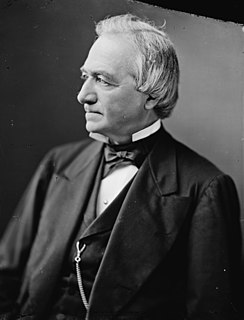A Quote by Edward Gibbon
In the most rigorous [Roman] laws, a wife was condemned to support a gamester, a drunkard, or a libertine, unless he were guilty of homicide, poison, or sacrilege, in which cases the marriage, as it should seem, might have been dissolved by the hand of the executioner.
Related Quotes
I support the death penalty. I think that it has to be administered not only fairly, with attention to things like DNA evidence, which I think should be used in all capital cases, but also with very careful attention. If the wrong guy is put to death, then that's a double tragedy. Not only has an innocent person been executed but the real perpetrator of the crime has not been held accountable for it, and in some cases may be still at large. But I support the death penalty in the most heinous cases.
There was danger at times that women might not be judged by the highest standards, but more leniently because of their sex. "She is a remarkably good chemist--for a woman," you might hear a man say. It seemed to me essential, if the ablest young women scholars were to achieve the best work of which they were capable, that they should be held to the most rigorous standards. ...To advance, a woman must do at least as good work as her male colleagues, usually better.
Be assured that, although men of eminent genius have been guilty of all other vices, none worthy of more than a secondary name has ever been a gamester. Either an excess of avarice or a deficiency of what, in physics, is called excitability, is the cause of it; neither of which can exist in the same bosom with genius, with patriotism, or with virtue.
...it would be a mistake...to ascribe to Roman legal conceptions an undivided sway over the development of law and institutions during the Middle Ages... The Laws of Moses as well as the laws of Rome contributed suggestions and impulse to the men and institutions which were to prepare the modern world; and if we could have but eyes to see... we should readily discover how very much besides religion we owe to the Jew.
The concept of guilt is found most powerfully developed even in the most primitive communal forms which we know... the man is guilty who violates one of the original laws which dominate the society and which are mostly derived from a divine founder; the boy who is accepted into the tribal community and learns its laws, which bind him thenceforth, learns to promise; this promise is often given under the sign of death, which is symbolically carried out on the boy, with a symbolical rebirth.
In the years of the Roman Republic, before the Christian era, Roman education was meant to produce those character traits that would make the ideal family man. Children were taught primarily to be good to their families. To revere gods, one's parents, and the laws of the state were the primary lessons for Roman boys. Cicero described the goal of their child rearing as "self- control, combined with dutiful affection to parents, and kindliness to kindred.







































